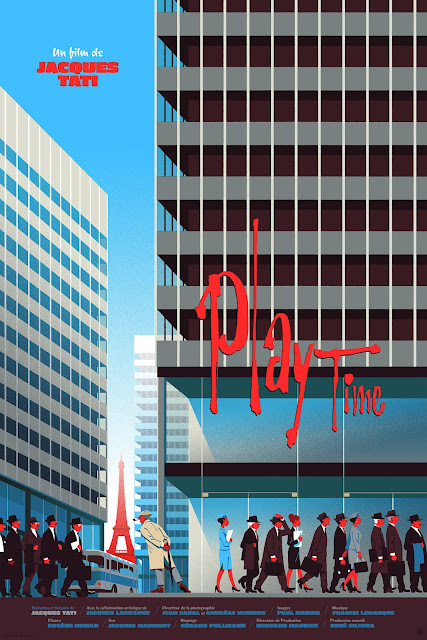Usable dark night nights in February in this part of Canada are extremely rare. If it is clear, it's usually far too cold to be standing outside with a telescope. From where I observe there is no warm room. The car can't be used, as the turbulence from the heat of the engine would cause poor seeing conditions in the local air Images would "swim" in the eyepiece. This is why telescopes cannot be mounted on rooftops of heated buildings. I have a threshold working temperature and I can't go much below that. It was clear Saturday night and part of Sunday night, and the temperatures were within my range of tolerance! February skies are spectacular due to their extreme darkness when there is no snow on the ground. Orion is high up and an unforgettable sight. Among other reasons, this is a great time of year to observe. Those lucky people in southern climates.
Sunday night at 8:15 pm I happened to look up from the eyepiece and noticed a cloud bank coming in from the east. I figured I had perhaps ten or fifteen minutes of clear sky remaining before I had to shut down. It was 26 degrees F, which just happened to be the dew point temperature. By 8:20 I was completely immersed in dense fog. It had been fog, not clouds, approaching, and it came almost lightning fast. By 8:30 I had packed up and was commencing my long drive home, at a much slower speed than usual. I have never encountered an instant fog like that before. At least I managed about 90 minutes of observing before it arrived.
In film news, there are three to report, two of them my picks and one of Deb's. Most recently we watched Arab Blues, a 2019 French/Turkish film that is supposed to take place in Tunisia. Here are two blurbs from the Mubi website about the film:
Selma has returned to Tunis and wants to open up a psychotherapy
practice. As she settles in, she’s faced with increasing complications.
There isn’t just the matter of finding patients, but she also needs to
navigate a confusing bureaucratic circus to get the right papers to run
her practice.
A charming fish-out-of-water comedy, this debut feature places local
cultural anxieties on the therapist’s couch. Starring an effortlessly
charismatic Golshifteh Farahani, Arab Blues affectionately maps the social landscapes of post-revolution Tunisia with wit, warmth, and a keen eye for the absurd.
We last saw Ms Farahani as the housewife of the bus driver in Jim Jarmusch's Paterson. She is perfect in the role of the therapist who begins to help so many people in her area. She seems to weather all of the setbacks and hostilities, but even she has her breaking point. There is a lot of not too subtle criticism of the country's bureaucracy (it was not filmed in Tunisia, needless to say), but even so, she wants to live there. She recognizes the needs of the people (they are just people, after all) and is trained to help them. Her young cousin and a friendly by the book cop offer some contrast to the main theme of the film. Well worth seeking out, as I am sure a lot of Arabic women already have.
That was my leaving soon choice. My regular choice was Jacques Tati's 1967 epic comedy Playtime. This is a hit and miss film, but when it hits, it is quite hilarious. Tati, however, had the same thing to say about modern times, and he says it over and over. Architecture, travel posters, American tourist groups, Paris traffic, and all night restaurants get sent up in this perhaps overlong film. The night at the restaurant is way too long, and sometimes seems to happen in real time. When the dawn finally comes, viewers are no doubt relieved. One of the scenes (among many) I really enjoyed was when the high energy jazz group in the restaurant calls it quits due to parts of the ceiling falling on them and their equipment. Suddenly there is dead silence, and the entire film comes to a standstill. Then an American woman volunteers to play piano, and she begins by playing slow and soft music. The film changes gears completely, all within the space of a minute or two, and it comes off brilliantly. Filmed in widescreen format, one must watch all parts of the screen at times, since the main action in centre may not be the intended focus of attention. Viewers can miss many jokes by not glancing off to a side. Definitely worth catching, but it is not my favourite Tati film. Criterion has a 6 minute intro given by Terry Jones!
Going back a week now, Deb's final film festival choice was The Day The Earth Caught Fire, a Val Guest British film from 1961. Atomic bomb tests cause the Earth's axis to tilt at a steeper angle, and that seems to throw things out of whack. We get to watch cynical reporters try to come to grips with events, which in include strange fog, hurricanes, catastrophic fires, earthquakes, and ultimate doom for the planet. Sound familiar? Climate change at its most dramatic. The film suffers from really bad science (an eclipse that comes days too soon) and one of the cheapest endings one could imagine. Does the Earth survive or doesn't it? They won't tell us. Boo. Still worth watching for SF classic film fans, this was a restored print.
Mapman Mike



No comments:
Post a Comment